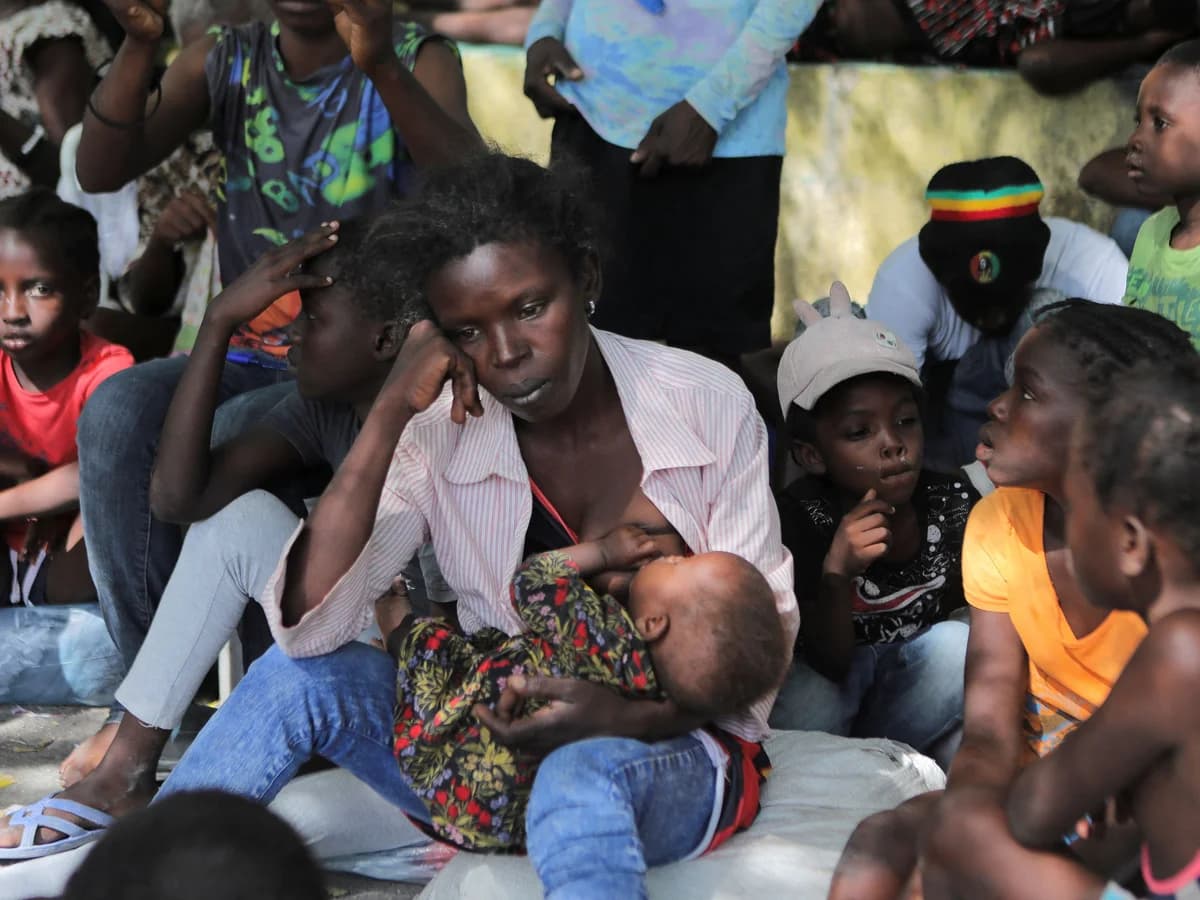We're loading the full news article for you. This includes the article content, images, author information, and related articles.
More than half of Haiti's population is experiencing crisis levels of hunger or worse, prompting the government to announce a rapid response plan and the establishment of a new Food and Nutrition Security Office.

Haiti's government on Friday, October 10, 2025, pledged a swift response to the escalating hunger crisis gripping the Caribbean nation, following a new report revealing that over half of its population is enduring crisis levels of hunger or worse. Louis Gérald Gilles, a member of Haiti's transitional presidential council, announced the launch of a plan to mobilise resources for those most in need. Additionally, officials have established a Food and Nutrition Security Office to enhance coordination and ensure an effective response to the growing food insecurity.
The Integrated Food Security Phase Classification (IPC), a leading international authority on hunger crises, reported that at least 5.7 million Haitians are at crisis level (IPC Phase 3 or higher), with 1.9 million of these facing emergency levels of hunger (IPC Phase 4). This marks a slight increase from 5.41 million Haitians at crisis level last year, with projections indicating a further rise to nearly 6 million by mid-2026.
The dire food security situation in Haiti is attributed to a confluence of factors, primarily the escalating influence of armed groups, persistent structural problems, and unfavourable climatic conditions. Gangs are estimated to control approximately 90% of Port-au-Prince, the capital, and have recently plundered agricultural regions, disrupting food production and supply chains.
The violence has led to massive displacement, with over 1.3 million people forced from their homes, many seeking refuge in overcrowded and unsanitary shelters with limited access to essential services like food, clean water, and healthcare. This displacement, coupled with six consecutive years of economic recession and deepening poverty, has exacerbated the crisis, with about 6 million Haitians living on less than $2.41 (approximately KES 350) a day.
Farmers in gang-controlled areas are often forced to negotiate access to their land and share their produce, while small businesses have been compelled to close, leading to job losses. The cost of food has also surged, with a 33% increase in July compared to the previous year.
The World Food Programme (WFP) and its partners have significantly scaled up operations in Haiti, reaching over 2 million people with life-saving assistance since January 2025. This includes providing hot meals to displaced individuals, cash for food, and support to prevent child malnutrition.
Despite these efforts, Haiti remains one of the most underfunded humanitarian crises globally, particularly concerning food security. Funding shortfalls have forced the WFP to suspend hot meals for newly displaced families and halve food rations. The lack of resources has also prevented the WFP from pre-positioning food stocks for natural disaster responses during the Atlantic hurricane season.
Humanitarian organisations face significant challenges in accessing communities in gang-controlled areas, although the WFP has managed to launch resilience projects, including restoring irrigation systems and boosting local food production, even in these difficult regions.
While the Haitian government has pledged a quick response, specific timelines for the implementation of the resource mobilisation plan and the operational details of the new Food and Nutrition Security Office remain largely unknown. The long-term sustainability of current aid efforts without stronger, sustained investment to address the root causes of food insecurity is also a significant concern, as highlighted by Martine Villeneuve, Haiti director at Action Against Hunger.
The effectiveness of the Haitian government's newly announced initiatives will be crucial to mitigating the worsening hunger crisis. Observers will be closely watching for concrete actions, transparent allocation of resources, and measurable improvements in food security indicators. The international community's response to urgent funding appeals from organisations like the WFP will also be critical in determining the scale and reach of humanitarian assistance in the coming months.
Keep the conversation in one place—threads here stay linked to the story and in the forums.
Sign in to start a discussion
Start a conversation about this story and keep it linked here.
Other hot threads
E-sports and Gaming Community in Kenya
Active 9 months ago
The Role of Technology in Modern Agriculture (AgriTech)
Active 9 months ago
Popular Recreational Activities Across Counties
Active 9 months ago
Investing in Youth Sports Development Programs
Active 9 months ago